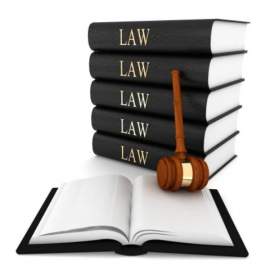
Defenses to Intentional Interference You Should Know

When a plaintiff accuses a defendant of an intentional tort, it is the defendant's responsibility to identify any justifications for his actions that may excuse him from liability for the plaintiff's injuries. In tort law there are several privileges that a defendant may refer to in order to avoid liability. It is up to the courts to decide whether the defendant's privilege excuses him from liability by determining whether the defendant had consent, permission by the plaintiff, or whether the plaintiff was defending himself, his property, or another person. If the defendant is able to establish privilege, then it is said that he has not committed a tortious act and he is not held liable.
Mistake:
In some cases, a defendant may be able to avoid liability for a tort even if the tort was committed due to a mistake of the facts. A mistake differs from an accident in that the defendant's actions were intended, but they are based on an erroneous belief by the defendant that his conduct would be justified. If the defendant can establish privilege and it is proven that his actions are a result of a justifiable motive, he may be able to avoid liability.
The mistake privilege is applicable in certain defenses such as the right to defend oneself even if the defense is based on a genuine mistake and the person was not actually in danger. The mistake made must be reasonable, in that another person in the same situation would most likely have acted in a similar manner as the defendant.
Consent:
When a tort is committed, the plaintiff's consent may excuse the defendant from liability. Consent occurs when a plaintiff displays a willingness to participate in the defendant's conduct and can be manifested through words or actions. Consent will only excuse liability under certain conditions. If the plaintiff lacks the capacity to consent, is coerced into consenting, or consents under false pretenses, then it is not a valid defense.
Capacity to consent is effected by the plaintiff's legal age, mental capability, and any abnormality due to an altered state of mind or mental disease or defect. A person's actions can sometimes be justified without a plaintiff's consent in the case of an emergency.
Self-Defense:
Tort law recognizes the personal right to defend oneself when attacked, using reasonable force. Reasonable force means that a person must defend himself using a justifiably proportionate level of force to that of the attacker. Self defense applies only to the threat of immediate harm and does not excuse the defendant from extracting revenge on the plaintiff.
Excessive force is not excused and deadly force should only be used as a means of self defense if one is threatened with deadly force and is without a means of escape. A person is not required to find a means of escape if he is attacked in his own home and may use deadly force to protect himself against a stranger whom he believes intends to seriously injure of kill him.
If the defendant has reasonable belief that he absolutely must use force in order to prevent injury to himself then he may not be held liable for the tort of assault and battery against the plaintiff.
Defense of Others:
Similar to self defense, the defense of others can also be used by a defendant to justify assaulting a plaintiff. In order to claim this defense, the defendant must believe that there is a definite need for intervention, and the person who is aided must have a legitimate claim to self defense.
The defendant must prove that he used only a reasonable amount of force in order to protect the victim. Also, the defendant must actually witness the plaintiff's attack on the victim; he cannot be informed by the victim, then intentionally seek out the plaintiff to exact revenge. In the defense of others, mistake by the defendant is generally; the victim must have actually been in real danger. If the defendant is able to prove these components, then he would not be held liable for the plaintiff's injuries.
Defense of Property:
Tort law allows a person to use a certain amount of physical force in order to protect his premises and physical property from imminent harm. In order to avoid liability, the defendant must prove that he actually owns the property being defended, and that the property is in real and imminent danger. An owner of property is generally allowed to use more physical force when protecting his dwelling against a trespasser rather than some other physical property.
The defendant should use a proportionate amount of force when defending his property. Deadly force can only be used when defending one's dwelling against a trespasser whom the owner believes intends to seriously injure or kill. Deadly force may never be used to protect against other forms of property. In the event of a mistake, the defense of property justification can still sometimes be used if the courts conclude that a reasonable person in the same situation would act similarly. Contact a property lawyer to review your case.
Recapture of Chattels:
Just as defense of property is used to avoid liability for a plaintiff's injury, a defendant is also entitled to regain possession of stolen property, called recapture of chattels. The term chattel refers to any article of movable personal property. The defense of chattels is somewhat more restrictive than other defenses.
If a person mistakenly believes that his property has been stolen, he cannot claim this defense based on a mistake of the facts. A person must act immediately in order to reclaim his property; if a substantial amount of time has passed, he will be held liable for any injury to the plaintiff.
Recapture of chattels can only be claimed if the property was wrongfully taken from the defendant and he did not willingly give it up. In the case of an easement, the defendant cannot claim this defense because the plaintiff has a legitimate legal claim over the property.
Recapture of Land:
The recapture of land defense is most frequently present in landlord-tenant disputes. It is generally held by the courts that no privilege exists for a landowner to forcibly enter the tenant's premises or interfere with the tenant's person or property. Forcible entry refers to the damages caused by the defendant while entering the property, such as a broken lock or a knocked down door. The defendant will be liable for these damages, and in most cases, is guilty of the tort of trespass. The rules concerning property rights have changed over time, but it is no longer held that the defendant is permitted to recapture his property by the use of force.
Necessity:
Necessity is a tort defense that is used under unusual, emergency circumstances where a defendant injures a plaintiff in order to prevent a greater harm. The defendant must prove that the harm inflicted on the plaintiff's person or property was less than the harm that was prevented.
The greater harm must be imminent in nature and cannot have been created by the defendant himself, meaning it would occur regardless of the defendant's presence. There are generally two categories of emergencies: public necessity and private necessity. If the greater harm effects only the plaintiff or a small number of citizens than it is of private necessity; if it effects the public as a whole, a large number of citizens, then it is of public necessity.
Legal Process:
An officer of the law is protected by the legal system when making an arrest, permitting that he properly followed the legal process. If he acts properly and within the limitations of this defense, then he is not liable for any injuries caused to the plaintiff. If a mistake is made by the courts in issuing a search or arrest warrant, the the officer is generally not held responsible for this mistake unless it can be found that he reasonably should have been aware of the mistake.
An officer should know the basic characteristics of a warrant, such as that a crime and specific individual to arrested must be name on the warrant. If the warrant appears valid on its face, then the officer will be protected from liability under the legal process defense.
Arrest w/out a Warrant:
Unlawful arrest is a tort that occurs when a person is improperly restrained and denied freedom of movement by another who claims to be justified in acting under the authority of the law. A warrant for arrest is a court order which permits a police officer to arrest an individual. In some cases, an officer and a private citizen can make an arrest without a warrant.
If an officer or a citizen witnesses a felony or a breach of the peace, or believes that one is about to occur, the officer may conduct an unwarranted arrest. An officer has more flexibility in making an arrest without a warrant then a private citizen does. A citizen must be absolutely sure that a felony or breach of the peace has occurred in order to make a citizen's arrest.
If there was a past breach of peace, neither a citizen or an officer has the right to make an unwarranted arrest. A person must use reasonable force in making an arrest; if excessive force is used he will not be justified in claiming this defense.
Discipline:
Based on a person's status or profession, he may be entitled to use reasonable force in order to discipline others. If a person such as a teacher, parent, or military official commits a tort which results in injury to a plaintiff, as long as certain conditions are met, the defense of discipline will excuse him from liability.
The defendant must use only a reasonable degree of force when disciplining the wrongdoer. Force that exceeds the nature of the wrongdoer's offense is not permitted. This defense often arises in cases where parents or teachers use force to discipline children.
The disciplinary action must be found to promote the child's welfare and cannot be considered unusually cruel or forceful. If these limitations are met, then the defendant will not be liable for the plaintiff injuries.



















